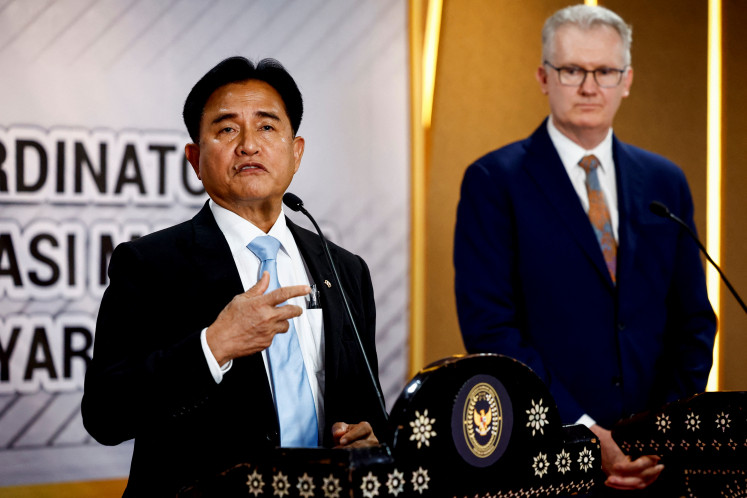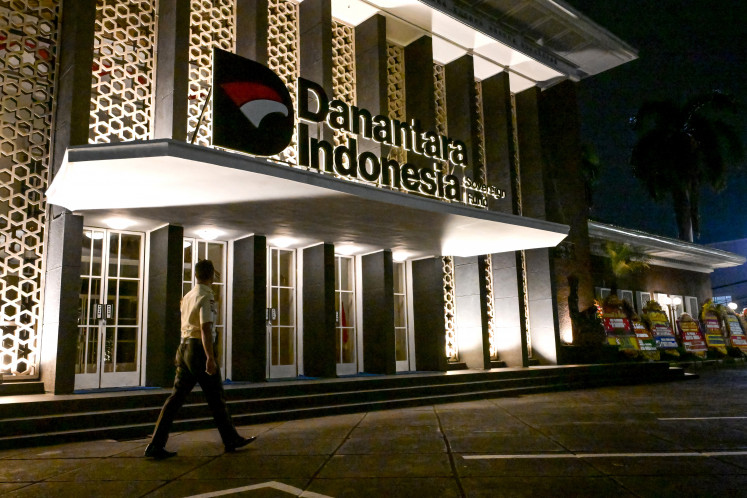Low sustainability business affects supply chains in Asia
Despite an increased global awareness of environment-friendly business practices in recent years, only a few companies in Asia have implemented environmental, social and governance (ESG) strategies, which comprise eco-friendly business projects and green investments
Change text size
Gift Premium Articles
to Anyone

D
espite an increased global awareness of environment-friendly business practices in recent years, only a few companies in Asia have implemented environmental, social and governance (ESG) strategies, which comprise eco-friendly business projects and green investments.
Consequently, Asian companies — particularly those in Southeast Asia — are at risk of falling off multinational corporations’ supply chains if they remain stagnant in their implementation of ESG strategies.
This view arose following the release of a report commissioned by global lender Hong Kong and Shanghai Banking Corporation (HSBC), in partnership with market analysis firm East & Partners, which looked into 1,731 companies and institutional investors’ attitudes and actions related to the ESG.
The study found that Southeast Asian countries, including Indonesia, were still lagging behind Europe and North America in their implementation of ESG strategies to follow up on the Paris climate accord ratified in 2015.
HSBC green finance head in Asia Jonathan Drew said the lack of eco-friendly business practices in Indonesia was partly due to the country’s reliance on non-renewable energy sources such as coal.
“Furthermore, the country still uses environmentally damaging components in its crude palm oil [CPO] production,” Drew said during a conference call.
According to the HSBC report, only 24 percent of Asian respondents have an ESG strategy.
The slow adoption of environmentally and socially conscious business principles in the region is unfavorably in contrast to 87 percent of European companies — including those in the United Kingdom — which have implemented ESG strategies.
The study also found that, globally, tax incentives and financial returns were the two biggest drivers for companies to invest in ESG-related activities.
HSBC global head of sustainable finance Daniel Klier said European countries — including Germany, France and England — had long depended on Southeast Asian supply chains in Indonesia, Malaysia, Thailand, the Philippines, Vietnam and Singapore for electronics, textile and the auto industry.
“However, most companies around the world, including those in Europe and North America, have adjusted their focus on green operations and green supply chains,” Klier said, adding that large companies would want to see it implemented in their partner countries in Southeast Asia.
The global business trend had clearly pointed to green finance as eco-friendly investments have increased substantially in recent years, according to Drew.
In an effort to push for sustainable corporate development in Indonesia, the Financial Services Authority (OJK) issued Regulation No. 60/2017 on the issuance of green bonds.
Indonesia is the first country to issue green sukuk (sharia-compliant debt paper) worth US$1.25 billion to the global market with a five-year tenor period and 4.05 percent interest rate.
“This shows the positive role that Islamic finance plays in the development of the country’s ESG strategy,” Drew said, adding that increasing awareness of green investment was a step in the right direction for the country.
HSBC Indonesia head of corporate sustainability Nunik Sutyoko said the bank had planned to organize a forum on sustainable infrastructure development at the International Monetary Fund (IMF) and World Bank Annual Meetings in Bali in October to ask its customers and investors to consider green finance.
“We want to address issues related to infrastructure development since the smart city concept has gained traction in the public discourse recently,” Nunik said, adding that the bank would organize the panel in partnership with the Investment Coordinating Board. (rfa)









